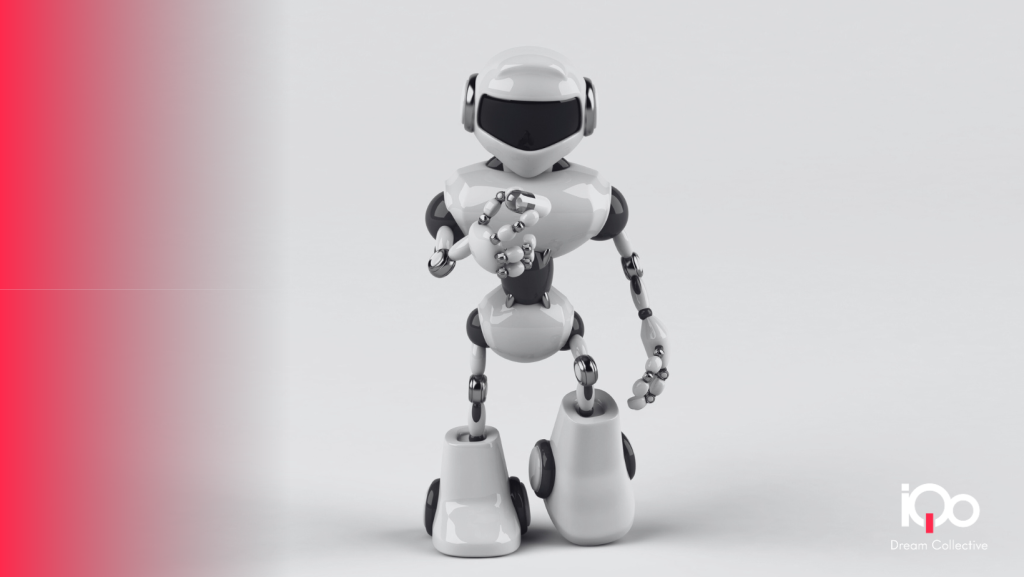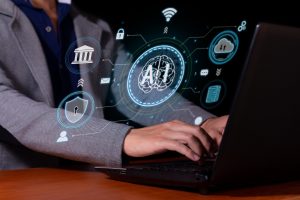AI Readiness, or how do you know if your company and the various business lines are ready to take advantage of the potential of AI? We've defined 4 criteria to help you assess whether your company is ready for true adoption of Generative AI. Are you (AI) ready ?

Contents
An essential preliminary step in measuring your IA Readiness: assessing your IT department's IA maturity
The adoption of generative Artificial Intelligence (AI) in information systems marks a major a major revolution in the IT sector. This form of AI is capable of creating innovative content, proposing novel solutions and accelerating the transformation of industries.
Generative AI is transforming business models by offering previously unimaginable creative and analytical capabilities. This acceleration opens up pathways to unprecedented operational efficiency, stimulates product innovation and enables in-depth customer understanding.
AI Readiness for a proactive adoption strategy of Generative AI
For companies to take full advantage of this acceleration, careful preparation and a proactive adoption strategy are essential.
In this context of AI Readiness, the question of how to prepare CIOs for this acceleration becomes paramount.
Preparing for generative AI requires, as a first step, an in-depth assessment of the IT department's maturity. This involves taking into account four key areas: infrastructure, skills, data, and corporate culture.
1. Appropriate IT infrastructures
To support the acceleration brought about by generative AI, IT infrastructures need to be not only robust, but also extremely flexible and scalable. The implementation of advanced technologies such as cloud computing or adapted technology platforms is crucial. They enable us to meet the demand for real-time processing and scalability induced by the implementation of generative AI tools.
2. Skills to be acquired or reinforced
The accelerating adoption of generative AI highlights the urgent need for specialist skills in the field.
More and more engineering schools, business schools and even IEPs are specializing in this field. But this is not enough. Ongoing training is essential if IT teams are to harness the disruptive potential of generative AI.
What's more, IT teams are not the only ones who need to be acculturated to generative AI. Indeed, more generally, all businesses in the value chain need to be able to understand the challenges, benefits and risks involved.
Between a minimum cultural level shared by everyone and the availability of a group of specialists, mastery of human resources will be essential to success.
IA Readiness at iQo means AI acculturation for all our consultants
At iQo, we advocate the hybridization of our consultants' skills of our consultants, placing AI at the heart of their skills. Our approach is based on the following four objectives:
- Train iQers in the technical, regulatory, ethical and safety issues surrounding generative AI, so that they can use it responsibly.
- Enable iQers to write high-performance queries that quickly deliver the results they want.
- Create augmented consultants, assisted by AI in their daily tasks to improve their productivity.
- Create an internal community to share best practices (collaborative prompt library) and feedback.
3. An adapted corporate culture
A company whose culture is to embrace innovation and acceleration is better prepared to integrate generative AI.
Encourage an open approach to experimentation and rapid learning can significantly facilitate the adoption of these advanced technologies within a CIO and, more broadly, a company.
The management logic, organization and size of companies need to be adapted to the challenges posed by generative AI. The integration of generative AI presents unique challenges, particularly in terms of data securityethics and resistance to change.
4. Put data at the heart of your ability to accelerate transformation.
With generative AI, the value of data increases tenfold. Strong data governance and architecture are essential to feed generative AI algorithms. They enable the creation of insights and decisions based on reliable data.
The practice of data governance becomes all the more essential. It is with the introduction of generative AI that data-driven companies companies will be able to assert a comparative advantage; on the contrary, companies that have not yet taken the data turn will have to adapt twice over.
A first step towards generative AI: Cockpit AI Readiness
The IA Readiness Dashboard is a strategic tool proposed by iQo to drive the integration of generative AI within the enterprise, and steered by the CIO. It provides a clear assessment of your company's preparations, and offers a roadmap and viewpoints to address areas requiring improvement.
Faced with the acceleration brought about by generative AI, companies have a unique opportunity to position themselves at the forefront of technological progress. Adopting an iterative approach, experimenting with pilot projects and establishing strategic partnerships are key strategies for overcoming these obstacles.
By carefully assessing their readiness and adopting appropriate practices, they can successfully navigate this transformation. The era of generative AI promises unprecedented innovation and efficiency, so being ready for this acceleration means seizing tomorrow's opportunities today.
How can iQo support your IA Readiness approach?
Is your IT department ready for the acceleration brought about by generative AI? Assess your AI maturity and take the necessary steps. Explore our IA Readiness offering for a cockpit offering a complete view, and get ready to embrace the future of technology.
If you want to acculturate your teams to the challenges of AI, we talk here about the priority training courses to follow.

AI training: explaining and demystifying before taking the plunge
Training employees in AI is not just about responding to a current trend, it's about supporting the transformation of our businesses. All businesses are

Generative AI: how will it change business models?
The steady advance of generative AI is radically changing the way economic sectors derive value. It's a change

Digital resilience: Cloud, data and AI
End-to-end control and management of the data collection, storage, processing, analysis and exploitation chain for data collected on


